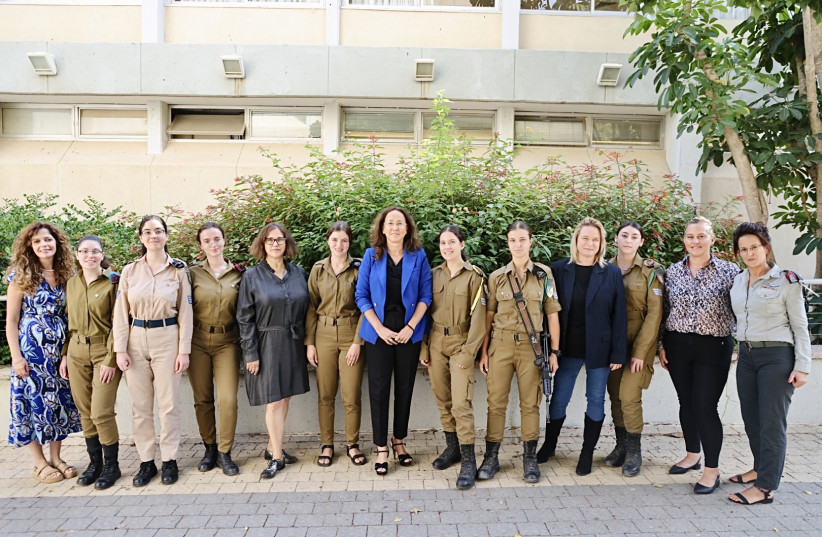Women are generally underrepresented in the Israeli hi-tech industry. According to the Women in High-Tech Report 2022, only 28% of core tech positions in the business sector and a mere 3% of tech start-up CEOs are women – a statistic which experts largely chalk up to a lack of hi-tech exposure for girls in the schooling system and women in the army.
While several initiatives have been launched in order to increase girls’ exposure to hi-tech at younger ages, not much has been done to help young women in the army; if they weren’t already assigned to tech positions within the IDF, and they didn’t receive significant exposure to the field during their education, they have very little potential to break into hi-tech once they’re discharged.
With that in mind, a new hi-tech evaluation, training, and mentoring program has been launched which aims to recruit young women from the army six months prior to discharge who do not serve in the military’s technological fields, and with an emphasis on female fighters who haven’t been exposed to technology at all during their military service.
“It’s the first collaboration of its kind, ever…the collaboration between the private and public sectors is an achievement of its own.”
Karin Rubinstein, CEO and president of IATI
“It’s the first collaboration of its kind, ever…the collaboration between the private and public sectors is an achievement of its own.”
The initial pilot of the program – called “Meshuchreretec” (a portmanteau of “tech” and the Hebrew word for a woman being discharged from the army) – is currently underway, having selected 75 applicants from over 600 to begin the comprehensive training course that will last about a year. During that time, the program participants will receive professional training, attend tours, lectures and meetings with leading hi-tech figures in the industry and participating companies including Apple, Google, Elbit, Western Digital, DELL and AT&T.
 Ayala Miller (5th from left) and Karin Rubinstein yaakov(7th from left) with participants of the newly-launched program’s pilot. (credit: ALON GILBOA)
Ayala Miller (5th from left) and Karin Rubinstein yaakov(7th from left) with participants of the newly-launched program’s pilot. (credit: ALON GILBOA)“I’m really a true believer in the power of women to support other women. In order to have an inclusive growth in Israel, we have to support and promote women into professions that they will be able to support themselves with and fulfill their potential.”
Ayala Miller, VP strategy for the Economic-Social Forum
“I’m really a true believer in the power of women to support other women. In order to have an inclusive growth in Israel, we have to support and promote women into professions that they will be able to support themselves with and fulfill their potential.”
The program is unique for its attention to female soldiers; as well, it represents a growing trend of collaboration between the Israeli army and Israel’s business sector: the program was created by the IDF in collaboration with the Economic-Social Forum, Business Roundtable Israel, Israel Aerospace Industries and the Israel Advanced Technology Industries (IATI) – an umbrella group representing more than 1000 companies and investors in the Israeli business sector.
“It’s the first collaboration of its kind, ever,” declared Karin Rubinstein, CEO and president of IATI. She explained that, while the organizations have all worked well on their own, “the collaboration between the private and public sectors is an achievement of its own.”
United under a common goal
That significant achievement has manifested in order to further one primary goal: to increase the number of women in the hi-tech industry and to encourage young women to integrate into the industry.
“We want to introduce them to hi-tech. We want to show them the job opportunities and potential careers – to show them the ecosystem of innovation in Israel, and how they can be part of it,” said Ayala Miller, VP strategy for the Economic-Social Forum. “I’m really a true believer in the power of women to support other women. In order to have an inclusive growth in Israel, we have to support and promote women into professions that they will be able to support themselves with and fulfill their potential.”